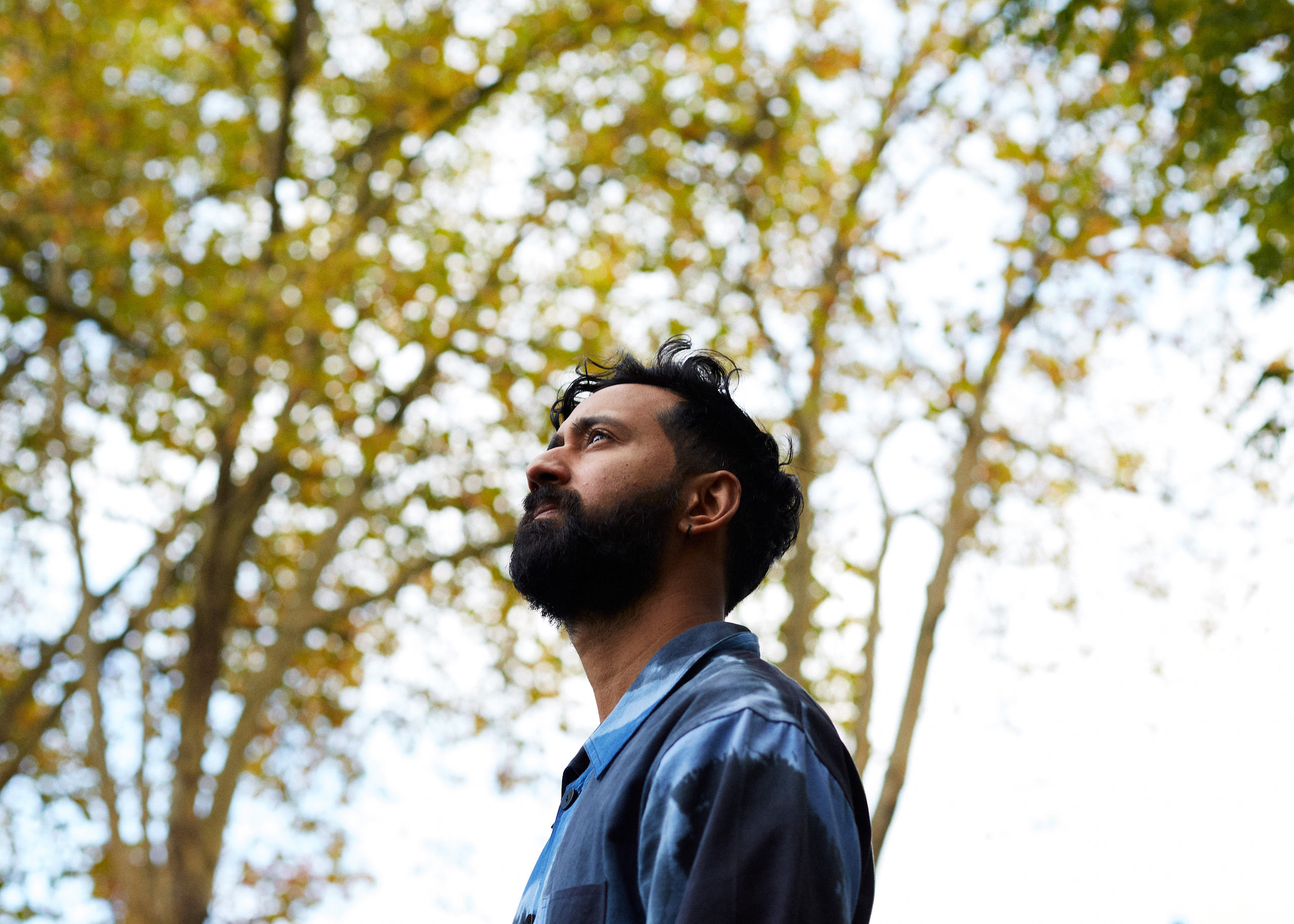Sarathy Korwar: “My goal was to reach transcendence through repetition”
The exploratory jazz percussionist and producer who's decolonising utopia

Ever since Sarathy Korwar’s debut full-length Day to Day was released in 2016, his pursuit of a more political form of ‘Indo’ jazz has become more layered with subsequent releases. The 34-year-old percussionist integrates sounds drawn from his Indian heritage with contemporary jazz, and the resulting album, Kalak, is driven by narratives of anti-colonialism and disrupted promises of utopia.
“This record embodies yesterday and tomorrow,” Korwar tells me. “It’s a telling of the way different cultures think about time. For me, the idea was to write the album title as a palindrome – Kal, meaning tomorrow, reads the same from both right and left side when written as ‘KALAK’, just like in Hindi and Urdu.”
In the age of misinformation dominated by right-wing and nationalist rhetoric, our understanding of the future is severely detached from our cultures and histories. With Kalak, Korwar seeks to present a new way of conceptualising the future by bringing back the anti-colonial spirit of South Asian pasts. On ‘Remember Begum Rokheya’, for example, he pays tribute to Rokeya Sakhawat Hossain, aka Begum Rokeya, a feminist pioneer who worked towards women’s education and emancipation in British India.
“It’s about rethinking our relationship with the future, and with time,” he explains. “It is not a standalone, abstract entity – it’s cyclical. [The future] is rooted in the voices of people who came before us, in the history that was made. The central theme of Kalak is those events and people like Begum Rokheya, and how these rich pasts have been lost in the new discourse of media and literature.”
Korwar claims to have written an Indofuturist manifesto on his new record, one which sways away from the Westernised idea of the future. “Who gets to speculate on our utopias or dystopias?” he asks. “When all our narratives around a better tomorrow are dominantly influenced by right-wing political agendas, it is difficult to imagine a singular idea of utopia.”
On Kalak, Korwar took two distinct approaches towards the idea of ‘India’, a word that he is reluctant to use because of its colonialist connotations and paradoxical exclusion of other countries and cultures in the subcontinent.
“First, I tried to imagine a manifesto that’s different from other futurist philosophies like Afrofuturism,” he says. “One that encompasses a myriad of cultures of South Asia, be it India, Pakistan, Bangladesh or Sri Lanka. This Indofuturist manifesto has to be anti-fascist and anti-colonial, and transcend the far-right sentiment of Hindu purity in India [under Hindutva-aligned Indian prime minister Narendra Modi] and the Rohingya crisis of Myanmar. It has to be aware of gender, caste and of queerness.”
The other key pillar of his Indofuturist manifesto is his conception of Kal (‘tomorrow’): “It’s about the ideas of karma, of time not being linear but cyclical. We don’t die, we’re reborn. My manifesto understands that life has consequences far beyond our time on earth,” explains Korwar.
“When we think of the future, we think of utopia,” says Korwar, turning to the album’s lead single, ‘Utopia Is A Colonial Project’. “This track is based on Thomas More’s book from 1516, Utopia. In the book there’s a fictional island which is being renamed after being colonised as the final move towards the erasure of histories and cultures. The so-called utopia was a blueprint for colonisation. Utopias [are mostly looked at] as pristine untouched lands – this comes with the idea of exploitation. Why is utopia never looked at as chaotic cities?”
Korwar’s conceptual commitment on this album extended all the way down to his songwriting approach. To express his ideas of cyclicality, he developed a non-hierarchical system called the ‘Kalak rhythm’ which became central to the album’s composition: “In most music, there is an inherent hierarchy. Verse, chorus, verse. So I started envisioning rhythms that are symbolic of time and cyclicality.”
This new approach incorporates repetition as a songwriting tool, and takes on varied forms throughout the new record. “A non-hierarchical method was liberating to work with,” he says. “My goal was to reach transcendence through repetition. It was about taking an idea and pushing it as much as we could,” says Korwar. “[The intent] was to surrender to something that is larger than me. The circular notation system was inspired by a great deal of Sufi, African and Hindustani classical music. It felt like the most natural way of doing it.”
The result of a wide range of speculative ideas and political principles, Kalak is a musical and conceptual meditation. Perhaps most crucially, it is not about claiming victimhood for his identity and ethnic heritage, but owning and taking pride in it.